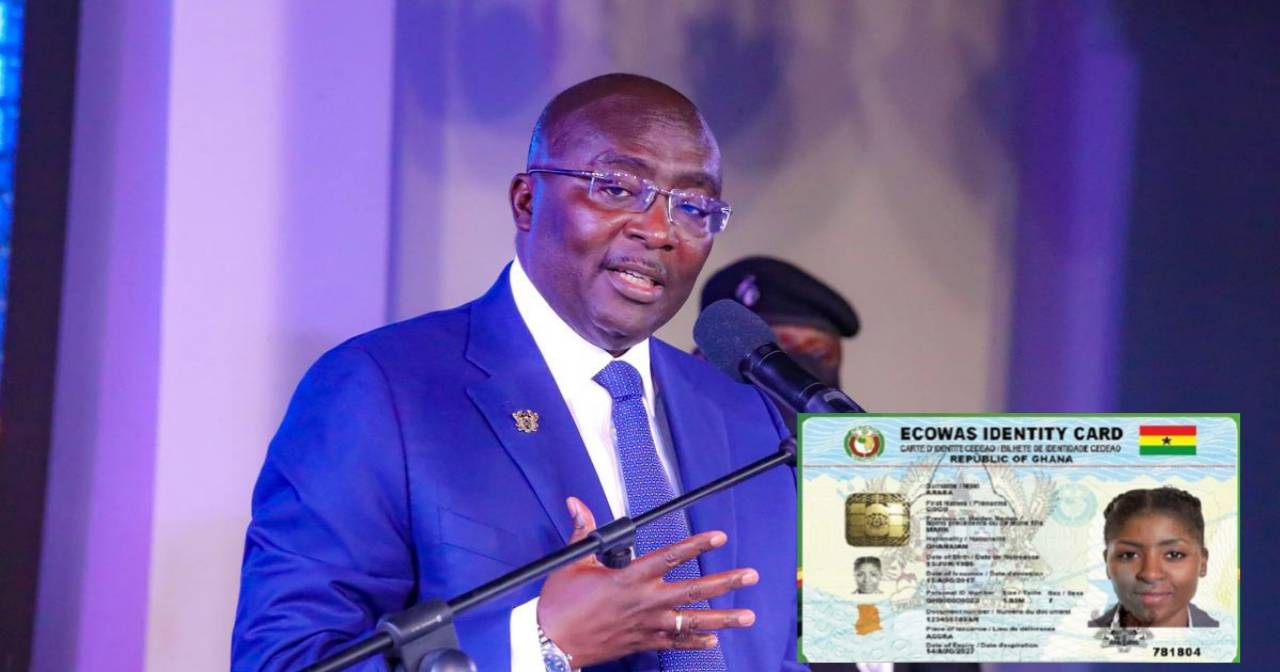"Ghana Card Revolution: Bawumia's Bold Stand Against Corruption and Identity Fraud!"
Vice President Dr. Mahamudu Bawumia has highlighted the government's dedicated efforts to address challenges within the informal economy by implementing the Ghana Card—a crucial element of the broader digitalization agenda. Speaking at the 20th edition of the Ghana Club 100 Awards on December 9, the NPP flagbearer drew attention to the negative impacts of the informal economy, including age cheating, identity fraud, and the widespread proliferation of counterfeit documents such as insurance papers, birth certificates, and passports.
Dr. Bawumia stressed the significance of transitioning from an informal economy to a more disciplined and transparent system. In his address, he outlined the multifaceted issues associated with an informal economy, encompassing corruption, lawlessness, tax evasion, and the prevalence of an unbanked society. To address these challenges and unlock the transformative potential of the economy, the Vice President highlighted the government's commitment to a comprehensive formalization process.
Explaining the pivotal role of digitalization in this formalization initiative, Dr. Bawumia identified the Ghana Card as the anchor for the transformation. He elaborated on the government's efforts to digitize various services through platforms like Ghana.gov.gh, emphasizing that this approach aims to enhance transparency, clarity, and efficiency within the system. The Vice President asserted that these measures play a crucial role in reducing corruption, as citizens can access services without resorting to bribery.
Dr. Bawumia underscored the need for transitioning from the prevalent informal economies, particularly in Ghana, emphasizing that building a truly transformative economy requires addressing the major challenges inherent in informal sectors. He described the informal economy as undisciplined, leading to societal undiscipline due to the absence of consequences for illicit actions. The Vice President pointed out various issues plaguing the informal economy, ranging from corruption and lawlessness to tax evasion, an unbanked society, loan repayment dodging, identity fraud, lack of address systems, age cheating, and the circulation of fake insurance, birth certificates, and passports.
Acknowledging the inherited challenges, Dr. Bawumia detailed the government's commitment to formalizing the economy to ensure transparency and functionality. He emphasized the heavy reliance on digitalization for this formalization process, citing substantial progress in this area. The Ghana Card emerged as a central component of the digitalization program, with over 17 million people enrolled, and linkage to bank accounts, SIM cards, Tax Identification Numbers (TIN), and National Health Insurance Scheme (NHIS) numbers. Additionally, the Ghana Card has been linked to the Controller and Accountant General Department payroll.
Dr. Bawumia highlighted ongoing efforts to expand the formalization of the economy through increased digitalization. The government aims to digitalize all government services through platforms like Ghana.gov.gh. These initiatives collectively contribute to transparency, providing businesses with a clearer system and reducing corruption by enabling service access without the need for bribery.
In conclusion, Vice President Dr. Bawumia's remarks underscore the government's proactive stance in addressing challenges within the informal economy through a comprehensive strategy involving formalization and digitalization, with the Ghana Card serving as a cornerstone for these transformative initiatives.




No comments yet
Be the first to share your thoughts!